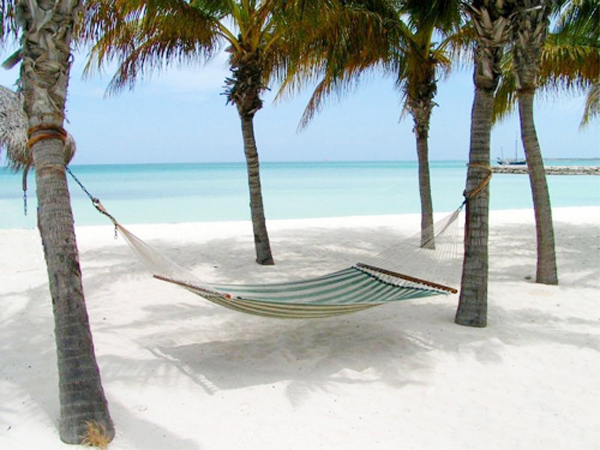The View From Europe
A few days ago I was asked a question by the host of one of Jamaica’s morning talk shows. He wanted to know if the time had come for the Caribbean to adopt a new approach to the outside world, given that those it regarded as its traditional friends were taking ever less interest.

My reply was a very definite yes. I suggested that the region and more realistically individual nations ought to consider ever more closely where their economic self-interest lay and reposition their diplomacy accordingly. I suggested that the world had moved on, the developed nations had few strategic interests to defend in the Caribbean, and the region had little option other than to pursue a foreign and economic policy that owed more to the future than to the past.
What I did not say was that in the real world this means the development of policies and strategies that enable the nations of the Caribbean together, separately or as sub-regional groupings to choose issues on which it has a better chance to leverage what it requires from foreign governments. By this I do not mean a foreign policy of mendacity but one that is well considered and which supports and delivers national or regional development objectives.
For a region as small, economically insignificant and divided as the Caribbean is, the secret of success most probably lies in finding issues that link the region’s interests to what matters most to the developed world.
Up to now it seems the issues that the region has taken to the international community while worthy have been marginal to the interests of the G20, the grouping that brings together world’s leading economic powers.
For example the regional initiative being led by President Jagdeo in his role as Caricom Chairman is a case in point. While it is understandable that the region wishes to go together to New York to meet the international financial institutions in order to convince them to support the establishment of a regional economic recovery fund, it is hard to see any strategic interest among these external partners that would makes such lending to the region as a whole an imperative.

The external perception is that the Caribbean is relatively well off, its economic decline is of marginal importance and any resultant social instability can be contained. While important for the Caribbean, the idea of a single region seems more and more to be regarded by those outside as an administrative convenience.
This gives me no pleasure, but one has to be realistic about the relatively low levels of influence the Caribbean now exercises with the nations of the G20.
All of which set me thinking about what issues there might be of sufficient interest to the international community on which the Caribbean occupied the moral high ground and has the ability to leverage new forms of support from the wealthier nations of the world.
Taken at face value the region has a very weak hand. The Caribbean does not have conflicts that threaten to escalate into global confrontations; thankfully it has neither nuclear weapons nor terrorism, nor does it have a significant military presence or the economic ability to change global financial or trade flows. In short it has little that would make bigger, wealthier and more influential states take notice.
But what it does have is the clear right to speak out in any global fora that require consensus, on issues where it occupies the moral high ground, and where disruption, although sometimes awkward, can bring benefits.
Put another way, the strategic concerns of nations in the developed world and emerging economies are focused on a limited number of issues. These are delivering high levels of continuing growth; guaranteeing long-term supplies of energy; achieving an agreement on climate change in a manner that does not disrupt growth; ensuring religious fundamentalism does not disrupt stability; maintaining high levels of public health; and avoiding catastrophic or costly global confrontations, It is in short an agenda that is about retaining power by subordinating almost every significant policy concern to one of these issues.
Of these the Caribbean can only claim to be able to have a role in respect of climate change.
Unusually, it can demonstrate that if the claims of the developed world’s experts and NGOs are true then much of its economy will quite literally disappear under the sea as its coastally located infrastructure, its reefs and tourism product succumbs to changes in sea level.
This year in Copenhagen the world will try to reach agreement on reducing the levels of carbon emissions. The issue pits developed and industrialised nations against the rapidly emerging economies of nations like Brazil, China and India and seeks to find a way to incorporate less powerful developing nations into a global consensus. The outcome of the process is far from certain, as the negotiation is in reality about limiting growth by establishing a binding global system that will determine who can emit specific volumes of carbon before having to pay.
What the Copenhagen related debate has so far failed to do is to address where low carbon emitting nations that are small and vulnerable to climate change fit into this process. Despite this, logic would suggest that if the physical infrastructure in nations like those in the Caribbean are most likely to be affected by rising sea levels and have a regional economy that is largely based on tourism, then they should be a major beneficiary of any resources transfer a global carbon trading scheme creates.
If the Caribbean is to gain more generally from the debate on climate change it needs to dramatically increase the profile of the consequences it faces from global warming and begin to play hard ball. Speaking more forcefully might then not just ensure that the region has a significant share of any resources transfer resulting from a climate change agreement, but might also offer opportunity to leverage new thinking about the region on the part of its external partners.
Previous columns can be found at www.caribbean-council.org

